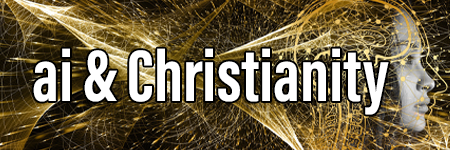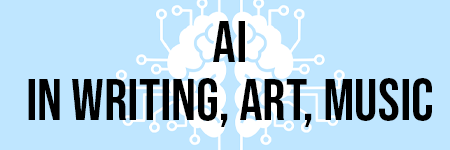Message from Achen

Dear Horeb Family,
As we enter into the month of February, it once again brings us some of our favorite occasions: the annual Super Bowl championship game, Valentine’s Day, and of course, the annual General Body meeting at church 🙂 Furthermore, we’re once again coming upon the time of the Great Lent, a special time which offers the blessed opportunity for us to be renewed and strengthened in the love and grace of God. Without the grace of God, it’s not possible to truly live a life of faithfulness that glorifies God. Every Lenten season, the Church as a worshipping and witnessing community, set apart and called out, embarks on a journey with Christ in which we submit to God’s grace towards really understanding who He is and who we are in Him. It’s a journey where the Holy Spirit is able to guide us in recognizing and “throwing off that which entangles” and hinders us, so that we can realize a blessed life truly abiding in Christ. This journey, then, is a journey of reconciliation and transformation – reconciliation with God our Creator, Redeemer and Sustainer, as well as with those around us, and transformation of our lives and the world around us for the glory of God. This spirit of reconciliation is much pertinent for our world torn and suffering from pandemic, political strife, and natural calamities.
This Lenten season, let us wholeheartedly submit our lives to the leading of the Good Lord journeying with us, to help us to get from where we are to where God wants us to be – let us spend this time to bring into focus our relationship with God and assess ourselves in His light. Let us be reconciled and transformed to walk all the more in His love and light and be the blessing that God calls us to be.
May God’s blessings and guidance be with all of us for a most meaningful Lenten season.
With prayerful regards,
Rev. Arun Samuel Varghese
Artificial Intelligence and Christianity:
Navigating the Intersection of Technology and Faith
Our guest contributor takes a look at the possible integration of Artificial Intelligence (AI) in Christian worship and its spiritual implications.
Artificial Intelligence (AI) is a rapidly evolving technology that has the potential to transform many aspects of modern life, including the religious sphere. In the Christian church, AI is not a central part of traditional religious practices or doctrine, but it is possible to consider how it could play a role in the future.
Improved Administrative Efficiency
One potential role for AI in the Christian church is to improve administrative efficiency. For example, AI could be used to automate tasks such as event planning, outreach, and member management, freeing up time for church leaders to focus on more spiritual matters. This could help churches run more effectively and efficiently, allowing them to better serve their communities.
Enhanced Worship Experiences
Another way that AI could potentially impact the Christian church is by enhancing worship experiences. For example, AI could be used to create immersive and interactive worship experiences, such as virtual reality services or personalized devotionals. This could help to engage people in new and meaningful ways, and provide them with new opportunities to connect with their faith.
Personalized Pastoral Care
In addition to improving administrative efficiency and enhancing worship experiences, AI could also play a role in providing personalized pastoral care. AI-powered chatbots or virtual assistants could offer personal support and guidance to individual members, supplementing the work of human pastors and ministers. This could be especially beneficial for people who live in remote areas or who have difficulty accessing in-person pastoral care.
Theological Research and Analysis
Finally, AI could have a role to play in theological research and analysis. AI could help researchers and theologians to analyze vast amounts of biblical and historical texts to gain new insights into the Christian faith. This could be particularly useful for scholars and researchers who are working to understand the history of Christianity and its evolution over time.
The Relationship between AI and Christianity: Ethical and Theological Questions
While the integration of AI into the Christian church could offer many benefits, it also raises ethical and theological questions that need to be carefully considered. Some traditional Christian communities may resist the use of AI in religious contexts, viewing it as incompatible with traditional beliefs and practices. Additionally, there may be concerns about the accuracy and transparency of AI-generated responses, and the potential for AI to perpetuate biases and inaccuracies in theological and biblical interpretation.
Trusting AI for Spiritual Answers
Ultimately, the level of trust that an individual has in AI for spiritual answers is a complex and personal decision that depends on their own beliefs and values. Some people may view AI as a useful tool for gathering information and supporting their spiritual journey, while others may view it as fundamentally limited or even inappropriate for exploring spiritual questions.
In order to trust an AI for spiritual answers, some may require the AI to be transparent about its limitations and biases, and to have a clear understanding of the data and algorithms used to generate its responses. Additionally, some may want to see that the AI has been developed and maintained by a reputable organization with a strong commitment to ethical and spiritual principles.
The Purpose of AI in Christianity
The purpose of AI in Christianity, like all things, is a matter of interpretation and personal belief. In Christian theology, God is typically understood to be the creator and sustainer of the universe, and the source of all life and wisdom. While some may view AI as a tool created by humans and therefore separate from God’s plan and purpose, others may see AI as part of God’s creation and a potential tool for furthering God’s kingdom.
In conclusion, the relationship between AI and Christianity is one that is still being explored, and it will likely continue to evolve in.

About the Guest Contributor
The author of this article is an artificial intelligence tool on Openai’s “chatgpt” website. It was not an attempt to deceive the reader but an attempt to understand how an AI looks at technology and its role in the church. The only human input were the initial prompts to the AI. The prompts for the article were “What role do you forsee an AI playing in the Christian church?”, “How does a person trust an AI for spiritual answers” and “What do you think God might see an AI’s purpose in Christianity?”
The image of the author was also created by another artificial intelligence tool called “DALL·E 2”. The prompt for the image was “Generation Y South Indian white collar Male”. You can read more about Artificial Intelligence in the section below.
Artificial intelligence’s integration into everyday life has implications for Christians. It is creeping into established religious traditions like messages, presentations and also music. Just as the internet and cell phones have become part of our everyday lives, AI can not be ignored or blocked. Just ask your kids, they are probably using this on a daily basis now. Below are three ways artificial intelligence is used in literature, art, and music.
AI and creating articles
“OpenAI is an artificial intelligence research company founded by the creator of SpaceX and Tesla Motors – Elon Musk. The company recently received investments to the tune of $1 billion from tech giant Microsoft. Generative Pre-trained Transformer (GPT) is an AI tool developed by OpenAI, which recently released GPT-3, the third-generation version which it has now licensed for commercial use to Microsoft. OpenAI claims GPT is “chameleon-like” and can adapt to the input sample text’s style and content to generate realistic and coherent text about any topic after being primed with a short sample input text.”
Source: Will AI be able to generate and preach a sermon? by Sherwin Jaleel 02/02/2021 https://digitalchutney.blog/will-ai-be-able-to-generate-and-preach-a-sermon/
AI and creating images
OpenAI also runs DALL·E 2, which it claims “is a new AI system that can create realistic images and art from a description in natural language.” Similar to the chatgpt ai, DALL·E uses descriptive prompts from the user to create variations of an image which can then be fine tuned.
AI and creating music
What about gospel music and artificial intelligence you ask? There isn’t any way for an AI to make music, let alone sing, and sound spiritual you might say. That is what Marquis Boone Enterprises claims it has done. Using an artificial intelligence, Marquis Boone Enterprises claim they have created the first “AI gospel artist”. The AI not only created the song but sang it, “Biblical Love”. You can listen to the song here and read more about the process and its implications here.



